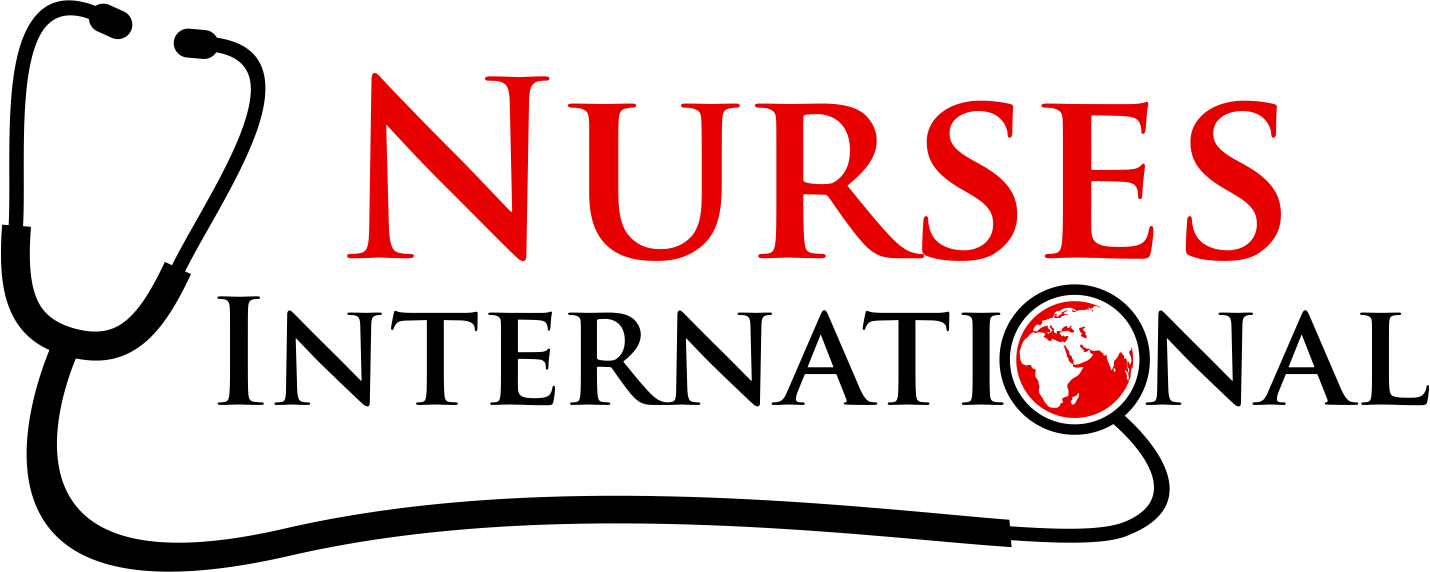-
Course Home PageCourse Home Page

-
Leadership and Management in Nursing Homepage

DISCLAIMER: This content is designed to enhance the study of nursing. This content is generic and is not designed to take into account the specific objectives, needs, and/or circumstances of any particular region or country. To become a nurse, learners must successfully complete a program of study approved by the government or state-regulatory agency in their place of residence. We cannot guarantee that the successful completion of these materials will enable you to practice in your place of residence. Make sure that you are in compliance with the scope of practice of your regulatory body before attempting to put into use or practice any of the knowledge gained.
Course Overview
Welcome to the Leadership and Management in Nursing course. This course is designed to equip nursing students with the knowledge to excel as leaders and managers in diverse healthcare settings. We explore foundational theories and principles of leadership and management, focusing on personal leadership styles, effective system cultures, and global regulations in professional nursing practice. The course is an integral component of the BSN Curriculum, empowering students to differentiate between leadership and management, prioritize nursing care, and engage in ethical and legal practices. By fostering interprofessional collaboration and evidence-based practice, students will be prepared to lead effectively and advocate for quality and safety in healthcare.

Course Development
The Leadership and Management in Nursing course is a competency-based course developed in partnership with Nurses International (N.I.) and NextGenU.org (NGU). Competencies were developed in collaboration with leading experts in nursing education and practice. The course objectives are aligned with The Essentials: Core Competencies for Professional Nursing Education. It utilizes resources from accredited organizations such as the World Health Organization (WHO), the U.S. National Institutes of Mental Health (NIMH), universities, international guidelines, OpenStax.org, Pressbooks, and peer-reviewed open access peer reviewed nursing textbooks and journals. The Moodle Learning Management System (LMS) supports a flexible and interactive learning environment.
The course was written by the Nurses International faculty and designed in conjunction with the NextGenU.org design team.
The Nurses International core faculty writers and reviewers: Kathleen Capone MS, RN, CNE, EdD; Stephanie Marfurt RN, PhD; Beth Hutchason RN, MN; Emily Parker RN, MSN, FNP-BC; and Vanessa Teed MSN, RN, CEN, CGNC.Course Structure
The course includes ten comprehensive units:
- Leadership and Management in Professional Nursing
- Quality and Safety in Health Care
- Prioritization
- Delegation and Supervision
- Leadership and Change
- Ethical and Legal Practice
- Interprofessional Teams
- Health Care Economics
- Quality and Evidence-Based Practice
- Advocacy
Each unit comprises:
- Individual lessons with accompanying reading materials
- PowerPoint presentations
- Learner self-assessment quizzes
- Critical thinking questions
- Flashcard learning material
- Case study activities
- Unit exams
Assessment
A grade of 100% is required on quizzes and unit exams. Submission of required activities for all case studies and reflection exercises is necessary to progress to the next lesson or section.
The estimated completion time is 79.4 hours.
A non-graded practice exam is provided at the end of the course material so that learners can use this to help them prepare for the final exam.
A comprehensive final exam consisting of 50 multiple-choice questions is administered at the end of the course.
A grade of 80% is required to pass the final exam. If not achieved, learners may self-remediate and attempt a second exam of comparable content.If unsuccessful on the second exam, the course must be retaken in full and passed to achieve a certificate of completion.
A certificate of completion is available for download upon successful course completion.
To PASS and Obtain a Certificate, learners must complete:
- All reading requirements
- All quizzes and unit exams with a passing grade of 100%
- All activities and case studies
- The final exam with a minimum of 80% (maximum 2 attempts)
- Self and course evaluation forms
-
Unit 1 Leadership and Management in Professional Nursing
 Unit Learning Outcomes:
Unit Learning Outcomes:- Explore the theories and principles of effective leadership related to personal leadership styles.
- Explore the essential differences between leadership and management
- Consider a leadership model for effective system cultures
- Review the global regulations in professional nursing practice
-
Unit 1: Lesson 1: Leadership
Student Learning Outcomes:
Upon completion of this lesson, you will be able to:- Define the styles of leadership styles and their characteristics
- Identify and discuss personal leadership style
Approximate time required for the readings for this lesson (at 144 words/minute): 1 hour and 30 minutes.
3 URLs -
Unit 1: Lesson 2: Management vs Leadership
Student Learning Outcomes:
Upon completion of this lesson, you will be able to:- Define the differences between the roles of leadership and management
- Define the elements of effective followership
- Explain the benefits of emotional and social intelligence
Approximate time required for the readings for this lesson (at 144 words/minute): 1 hour and 28 minutes.
3 URLs -
Unit 1: Lesson 3: Culture of Safety
Student Learning Outcomes:
Upon completion of this lesson, you will be able to:- Define systems theory
- Define the key elements of a culture of safety
- Explain the Just Culture model
Approximate time required for the readings for this lesson (at 144 words/minute): 1 hour and 28 minutes.
3 URLs -
Unit 1: Lesson 4: Global Regulations for Professional Nursing Practice
Student Learning Outcomes:
Upon completion of this lesson, you will be able to:- Explain the ANA standards for professional practice
- Explain the role of the nursing process in professional nursing practice
- Outline the ICN code of ethics and how it relates to professional nursing
Approximate time required for the readings for this lesson (at 144 words/minute): 1 hour and 30 minutes.
3 URLs -
Unit 2 Quality and Safety in Health Care
 Unit Learning Outcomes:
Unit Learning Outcomes:- Explore the practices within healthcare organizations that support quality and safety in healthcare
- Discuss the the role of clinical governance in patient safety
- Explore quality improvement as a managerial means to safe patient outcomes
-
Unit 2: Lesson 1: Clinical Governance (CG)
Student Learning Outcomes:
Upon completion of this lesson, you will be able to:- Define clinical governance
- Explain the benefits of CG
- Describe the supporting principles of CG
- Describe the implementation challenges of effective CG
- Define the key elements of a CG framework
Approximate time required for the readings for this lesson (at 144 words/minute): 1 hour and 46 minutes.
3 URLs -
Unit 2: Lesson 2a: Quality Improvement (QA) Health Care
Student Learning Outcomes:
Upon completion of this lesson, you will be able to:- Define QA
- Explain the QI model: “Plan, Do, Study, Act.”
- Discuss the six dimensions of healthcare
- Outline human factor barriers related to QI
Approximate time required for the readings for this lesson (at 144 words/minute): 1 hour and 9 minutes.
3 URLs -
Unit 2: Lesson 2b: Quality Improvement Root Cause Analysis (RCA)
Student Learning Outcomes:
Upon completion of this lesson, you will be able to:- Define RCA
- Describe how RCA is used to ensure quality
- Explain the various methods used in RCA
Approximate time required for the readings for this lesson (at 144 words/minute): 1 hour and 39 minutes.
3 URLs -
Unit 3 Prioritization
 Unit Learning Outcomes:
Unit Learning Outcomes:- Prioritize nursing care based on client acuity
- Use principles of time management to organize work
- Analyze the effectiveness of time management strategies
- Incorporate clinical judgment to prioritize nursing care
- Apply a framework for prioritization
-
Unit 3: Lesson 1: Prioritization in Nursing Care
Student Learning Outcomes:
Upon completion of this lesson, you will be able to:- Describe the principles of patient acuity
- Describe how Maslow’s theory impacts prioritization of patient care
- Explain the frameworks ABC and CURE in prioritization
- Outline the significance of prioritization related to staffing considerations
Approximate time required for the readings for this lesson (at 144 words/minute): 2 hours and 19 minutes.
3 URLs -
Unit 3: Lesson 2: Principles of Time Management
Student Learning Outcomes:
Upon completion of this lesson, you will be able to:- Describe the significance of time management in nursing practice
- Detail examples of various time management tools
- Provide examples of time management strategies
- Discuss the elements for managing teams
Approximate time required for the readings for this lesson (at 144 words/minute): 1 hour and 49 minutes.
3 URLs -
Unit 3: Lesson 3: Clinical Judgment
Student Learning Outcomes:
Upon completion of this lesson, you will be able to:- Define critical thinking (CT)
- Define clinical reasoning (CR)
- Explain why CT and CR are necessary in nursing practice
- Explain how data cues are used in priority setting
Approximate time required for the readings for this lesson (at 144 words/minute): 1 hour and 24 minutes.
3 URLs -
Unit 4 Delegation and Supervision
 Unit Learning Outcomes:
Unit Learning Outcomes:- Explain principles of delegation
- Evaluate the criteria used for delegation
- Apply effective communication techniques when delegating care
- Determine specific barriers to delegation
- Evaluate team members’ performance based on delegation and supervision principles
- Incorporate principles of supervision and evaluation in the delegation process
- Identify scope of practice of the RN, LPN/VN, and unlicensed assistive personnel roles
- Identify tasks that can and cannot be delegated to members of the nursing team
-
Unit 4: Lesson 1: Delegation
Student Learning Outcomes:
Upon completion of this lesson, you will be able to:- Define delegation
- Define the terms related to delegation
- Define assignment
- Explain the 5 rights of delegation
Approximate time required for the readings for this lesson (at 144 words/minute): 1 hour and 51 minutes.
3 URLs -
Unit 4: Lesson 2: Responsibilities of Team Members
Student Learning Outcomes:
Upon completion of this lesson, you will be able to:- Explain the roles of each team member with rationales
- Describe the tasks appropriate for each team member role
Approximate time required for the readings for this lesson (at 144 words/minute): 1 hour and 43 minutes.
3 URLs -
Unit 4: Lesson 3: Supervision
Student Learning Outcomes:
Upon completion of this lesson, you will be able to:- Describe the essential elements of supervision
- Explain the key points of constructive feedback
- Provide example of constructive feedback with a nurse team member
Approximate time required for the readings for this lesson (at 144 words/minute): 1 hour and 14 minutes.
3 URLs -
Unit 5 Leadership and Change
 Unit Learning Outcomes:
Unit Learning Outcomes:- Differentiate between leadership and management
- Explore organizational culture and its role in creating an positive work culture
- Explore the different leadership and management styles
- Explain the key changes theory models
- Discuss the role of a manager in implementing change
-
Unit 5: Lesson 1: Leadership and Management
Student Learning Outcomes:
Upon completion of this lesson, you will be able to:- Explain the role of the nurse as leader
- Explain the difference between leadership and management
- Describe the characteristics of a leader and a manager
- Detail the nurse’s leadership professional standards of practice competencies
- Outline the various leadership styles
Approximate time required for the readings for this lesson (at 144 words/minute): 1 hour and 45 minutes.
3 URLs -
Unit 5: Lesson 2: Organizational Culture
Student Learning Outcomes:
Upon completion of this lesson, you will be able to:- Outline the role of the follower in an organization
- Define Systems Theory and its relationship to organizations
- Explain the Culture of Safety
- Explain the elements and significance of a Just Culture model
Approximate time required for the readings for this lesson (at 144 words/minute): 1 hour and 39 minutes.
3 URLs -
Unit 5: Lesson 3: Implementing Change
Student Learning Outcomes:
Upon completion of this lesson, you will be able to:- Define change as it relates to organizations
- Describe the process of following change theories as they relate to nursing management:
Lewin's change model
Lippett’s Seven Step Change Theory - Define key elements in change management
- Outline the effective strategies for change management
Approximate time required for the readings for this lesson (at 144 words/minute): 1 hour and 28 minutes.
3 URLs -
Unit 6 Ethical and Legal Practice
 Unit Learning Outcomes:
Unit Learning Outcomes:- Examine global law and workplace guidelines related to law and nursing
- Explore the Regulatory concepts related to the nursing profession
- Examine special Issues related to ethics and legal practice
- Identify common ethical concepts encountered in nursing practice
- Explore the Frameworks involved in dealing with ethical dilemmas
-
Unit 6: Lesson 1: Global Workplace Law: Issues
Student Learning Outcomes:
Upon completion of this lesson, you will be able to:- Identify how nursing is regulated globally
- Discuss the special issues related to nursing
Approximate time required for the readings for this lesson (at 144 words/minute): 1 hour and 20 minutes.
3 URLs -
Unit 6: Lesson 2: United States Law Issues - Public and Private Law
Student Learning Outcomes:
Upon completion of this lesson, you will be able to:- Provide examples of public law and their implications for nurses
- Provide examples of private law and their implications for nurses
Approximate time required for the readings for this lesson (at 144 words/minute): 1 hour and 43 minutes.
3 URLs -
Unit 6: Lesson 3: Nursing Practice Regulatory Bodies
Student Learning Outcomes:
Upon completion of this lesson, you will be able to:- Discuss the relationship between the Boards of Nursing, the Nurse Practice Act and the Civil Justice System in regulating nursing
- Explain the process of allegation with an example
- Explain disciplinary and non-disciplinary actions
- Define the types of liability
Approximate time required for the readings for this lesson (at 144 words/minute): 1 hour and 18 minutes.
3 URLs -
Unit 6: Lesson 4: Professional Conduct
Student Learning Outcomes:
Upon completion of this lesson, you will be able to:- Outline professional conduct allegations and provide examples
- Outline allegations related to Scope of practice and provide examples
Approximate time required for the readings for this lesson (at 144 words/minute): 1 hour and 52 minutes.
3 URLs -
Unit 6: Lesson 5: Other Legal Concepts
Student Learning Outcomes:
Upon completion of this lesson, you will be able to:- Explain the following concepts:
Informed consent
Power of attorney
Advance Directives
Living will
Durable paper of attorney
Capacity for decision making - Identify the nurse's role in these legal concepts
Approximate time required for the readings for this lesson (at 144 words/minute): 1 hour and 22 minutes.
3 URLs - Explain the following concepts:
-
Unit 6: Lesson 6: Ethical Dilemmas
Student Learning Outcomes:
Upon completion of this lesson, you will be able to:- Define ethical dilemmas
- Explain the frameworks used to address ethical dilemmas in nursing and provide examples:
Nursing process model
Four quadrant approach
Moral model
PLUS Ethical Decision Making model
Approximate time required for the readings for this lesson (at 144 words/minute): 1 hour and 51 minutes.
3 URLs -
Unit 7 The Interprofessional Teams
 Unit Learning Outcomes:
Unit Learning Outcomes:- Discuss the core competencies for interprofessional practice
- Explore the values and ethics for interprofessional practice
- Address conflict resolution as it relates to teams and nursing practice
- Discuss the roles of teams and how they collaborate to ensure patient safety
-
Unit 7: Lesson 1: Interprofessional Collaboration (IPC)
Student Learning Outcomes:
Upon completion of this lesson, you will be able to:- Define interprofessional collaboration
- Define the benefits of interprofessional collaboration
- Define the common concept definitions related to interprofessional collaboration
- Provide examples of interprofessional collaboration
- Discuss the barriers to effective interprofessional collaboration
- Discuss strategies to overcome barriers to effective interprofessional collaboration
Approximate time required for the readings for this lesson (at 144 words/minute): 1 hour and 12 minutes.
3 URLs -
Unit 7: Lesson 2: Competencies of Interprofessional Collaboration (IPC)
Student Learning Outcomes:
Upon completion of this lesson, you will be able to:- Explain how the IPCs align with the ANA code of ethics
- Define the 4 IPC Core Competencies and include examples of how they may be applied to nursing practice
Approximate time required for the readings for this lesson (at 144 words/minute): 1 hour and 27 minutes.
3 URLs -
Unit 7: Lesson 3: Interprofessional Collaboration (IPC) Behaviors
Student Learning Outcomes:
Upon completion of this lesson, you will be able to:- Define the 6 core behaviors of IPC
- Provide examples of IPC behaviors in nursing practice
Approximate time required for the readings for this lesson (at 144 words/minute): 1 hour and 12 minutes.
3 URLs -
Unit 7: Lesson 4: Elements of Teamwork and Collaboration
Student Learning Outcomes:
Upon completion of this lesson, you will be able to:- Identify the barriers and promoters of communication in healthcare teams
- Identify the 14 C’s of teamwork
- Recognize the various communication roles within interprofessional team
Approximate time required for the readings for this lesson (at 144 words/minute): 1 hour and 15 minutes.
3 URLs -
Unit 8 Health Care Ecoomics
 Unit Learning Outcomes:
Unit Learning Outcomes:- Explore the factors that influence the cost of healthcare
- Contrast the types of healthcare reimbursement
- Discuss the elements of budgets and staffing and how they impact to patient care and nursing practice
-
Unit 8: Lesson 1: Health Care Cost
Student Learning Outcomes:
Upon completion of this lesson, you will be able to:- Describe the types of economics and provide an example of each
- Explain the trends that impact healthcare costs
- Outline the Affordable Care Act (ACA)
Approximate time required for the readings for this lesson (at 144 words/minute): 1 hour and 45 minutes.
3 URLs -
Unit 8: Lesson 2: Health Care Reimbursement
Student Learning Outcomes:
Upon completion of this lesson, you will be able to:- Outline the types of healthcare reimbursements
- Explain in detail the types of healthcare insurance
- Identify nursing considerations related to insurance coverage
Approximate time required for the readings for this lesson (at 144 words/minute): 1 hour and 23 minutes.
3 URLs -
Unit 8: Lesson 3: Budgets and Staffing
Student Learning Outcomes:
Upon completion of this lesson, you will be able to:- Define and describe the types of budgets
- Describe how nursing services are applied to nursing care
- Outline the nurses considerations when accepting a patient assignment
- Explain the criteria for “call”
- Explain the benefits of appropriate staffing
- Outline the nurse's role in cost effective care
Approximate time required for the readings for this lesson (at 144 words/minute): 1 hour and 28 minutes.
3 URLs -
Unit 8: Lesson 4: Resource Stewardship and Case Management
Student Learning Outcomes:
Upon completion of this lesson, you will be able to:- Define resource management
- Explain the competencies of ANA’s Resource Stewardship
- Define case management and levels of care
- Explain how nurses can address economic pressure in the healthcare system
Approximate time required for the readings for this lesson (at 144 words/minute): 1 hour and 32 minutes.
3 URLs -
Unit 9 Quality and Evidence-Based Practice
 Unit Learning Outcomes:
Unit Learning Outcomes:- Explore the role of quality as it relates to patient care
- Analyze the role of research and evidence-based practice as it relates to quality patient care
- Discuss the roles of organizations in developing standards of nursing practice
- Examine how informatics systems contribute to quality nursing practice
- Explore the role of the nurse in workplace quality improvement
-
Unit 9: Lesson 1: Quality Care
Student Learning Outcomes:
Upon completion of this lesson, you will be able to:- Define quality care
- Outline the Competencies of ANA’s Quality of Practice Standards of Professional Performance and provide examples within the nursing domain
- Explain the Quality and Safety Education for Nurses (QSEN)
Approximate time required for the readings for this lesson (at 144 words/minute): 1 hour and 18 minutes.
3 URLs -
Unit 9: Lesson 2: Measuring Quality in Healthcare
Student Learning Outcomes:
Upon completion of this lesson, you will be able to:- Define Magnet Recognition qualifications
- Explain Centers for Medicare & Medicaid Services (CMS) quality measurements
- Outline the functions of the accreditation organizations for health care
Approximate time required for the readings for this lesson (at 144 words/minute): 1 hour and 12 minutes.
3 URLs -
Unit 9: Lesson 3: Quality Standards in Healthcare
Student Learning Outcomes:
Upon completion of this lesson, you will be able to:- Define core measures and provide examples
- Outline the 4 accountability measurements
- Explain the National Patient Safety goals for healthcare organizations and provide an example of the Hospital Safety Goals
Approximate time required for the readings for this lesson (at 144 words/minute): 1 hour and 15 minutes.
3 URLs -
Unit 9: Lesson 4: Quality Improvement in Healthcare
Student Learning Outcomes:
Upon completion of this lesson, you will be able to:- Explain the role of quality utilization review
- Outline the benefits of informatics in quality care
- Explain the National Database of Nursing Quality indicators and provide examples of how it is applied to nursing care
- Outline the elements of Quality Improvement including PDSA with an example
- Compare PSDA with the Nursing process
- Indicate measures to address barriers to quality improvement
Approximate time required for the readings for this lesson (at 144 words/minute): 1 hour and 20 minutes.
3 URLs -
Unit 9: Lesson 5: Evidence-based Practice
Student Learning Outcomes:
Upon completion of this lesson, you will be able to:- Define evidence-based practice
- Outline the Competencies of ANAs Scholarly Inquiry Standard of Professional Performance
- Outline the knowledge, skills and attitudes associated with evidence-based practice
- Provide an example of a clinical support, nursing journal, and conference
Approximate time required for the readings for this lesson (at 144 words/minute): 1 hour and 22 minutes.
3 URLs -
Unit 9: Lesson 6: Research
Student Learning Outcomes:
Upon completion of this lesson, you will be able to:- Define research as it relates to nursing
- Define how PICOT is used in nursing research
- Explain how patients' rights are protected in nursing research
- Describe the types of research including examples
Approximate time required for the readings for this lesson (at 144 words/minute): 1 hour and 20 minutes.
3 URLs -
Unit 10 Advocacy
 Unit Learning Outcomes:
Unit Learning Outcomes:- Explore the effect of the current healthcare policies on healthcare consumers and nursing practice
- Explore how professional organizations and positions on collective bargaining impact nursing practice
- Examine how government policy and legislation affect nursing practice
- Discuss the types of advocacy models
- Consider the significance of lifelong learning for nurse leaders
-
Unit 10: Lesson 1: Advocacy Concepts
Student Learning Outcomes:
Upon completion of this lesson, you will be able to:- Outline the basic advocacy concepts
- Detail the ANA Competencies of advocacy standard of professional practice and provide examples of each
- Identify the ways nurses act as advocates in daily practice
Approximate time required for the readings for this lesson (at 144 words/minute): 1 hour and 18 minutes.
3 URLs -
Unit 10: Lesson 2: Community and Organizational Advocacy
Student Learning Outcomes:
Upon completion of this lesson, you will be able to:- Describe how nurses advocate for communities
- Describe the pros and cons of nursing unions
Approximate time required for the readings for this lesson (at 144 words/minute): 1 hour and 18 minutes.
3 URLs -
Unit 10: Lesson 3: Advocacy Models
Student Learning Outcomes:
Upon completion of this lesson, you will be able to:- Provide examples of Nurses involvement in various advocacy models
- Describe the nurses involvement in legislative policy
- Explain the concept of Whistleblowing
- Detail the ANA’s information regarding Whistleblowing
Approximate time required for the readings for this lesson (at 144 words/minute): 1 hour and 15 minutes.
3 URLs -
Unit 10: Lesson 4: Advocating for Self and Others
Student Learning Outcomes:
Upon completion of this lesson, you will be able to:- Recommend the steps for becoming a nurse advocate
- Identify the risk of compassion fatigue
- Describe how organizational stress relates to retention cycles
- Describe how nurses can mitigate stress with self care
- Identify strategies used by nurse leaders to promote resilience in the workplace
Approximate time required for the readings for this lesson (at 144 words/minute): 2 hour and 3 minutes.
3 URLs -
Unit 10: Lesson 5: Lifelong Learning
Student Learning Outcomes:
Upon completion of this lesson, you will be able to:- Describe possible methods to maintain professional life long learning
- List the key elements in creating a culture of lifelong learning in the healthcare workplace
Approximate time required for the readings for this lesson (at 144 words/minute): 1 hour and 12 minutes.
3 URLs -
Course and Self Evaluation & Certificate
 In this section, you can provide feedback about this course to help us make NextGenU.org better. Once evaluations are completed, you will be able to download your certificate of completion.
In this section, you can provide feedback about this course to help us make NextGenU.org better. Once evaluations are completed, you will be able to download your certificate of completion.

